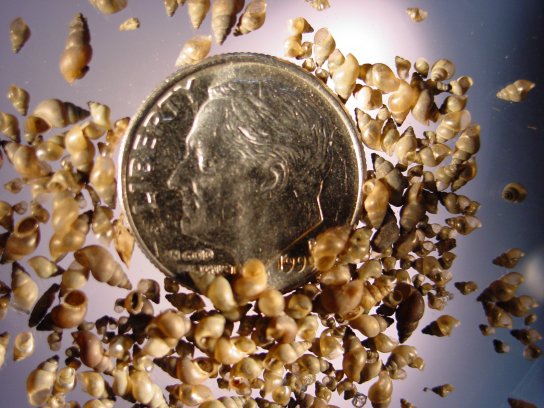The National Science Foundation has given a grant that could wind up totaling almost a million dollars to a University of Iowa study researching which is better for New Zealand mud snails: reproducing sexually or asexually. The grant, awarded in 2011 to last until 2015, has already cost $502,357, and could wind up costing taxpayers $876,752 before all is said and done.
The abstract for the study explains why this research is so important:
Sexual reproduction is more costly than asexual reproduction, yet nearly all organisms reproduce sexually at least some of the time. Why is sexual reproduction so common despite its costs. This project will use a different organism, Potamopyrgus antipodarum, a New Zealand snail, which has both sexual and independently-derived asexual lineages that make it ideally suited to address fundamental evolutionary questions of how genes and genomes evolve in the absence of sexual reproduction.
The implication is that if the study can prove that there is no benefit to sexual reproduction, then an organism should simply reproduce asexually without a mate. The press release from the University of Iowa tipped the hand of the study by asserting that the slower rate of reproduction by sexual reproduction was “the cost of males,” that female organisms could conceivably reproduce without the need for male involvement.
The press release blurted out, “[T]he commonness of sex is surprising because asexual females should be able to produce twice as many daughters as sexual females that make both male and female offspring. Despite this and other costs, nearly all organisms reproduce sexually at least some of the time. This means that sex must be associated with profound advantages, while asexual reproduction must have significant evolutionary consequences.”
The National Science Foundation (NSF) was founded by Congress in 1950 “to promote the progress of science; to advance the national health, prosperity, and welfare; to secure the national defense…” Their website states:
We are tasked with keeping the United States at the leading edge of discovery in areas from astronomy to geology to zoology. So, in addition to funding research in the traditional academic areas, the agency also supports “high-risk, high pay-off” ideas, novel collaborations and numerous projects that may seem like science fiction today, but which the public will take for granted tomorrow … The reviewer’s job is to decide which projects are of the very highest caliber. NSF’s merit review process, considered by some to be the “gold standard” of scientific review, ensures that many voices are heard and that only the best projects make it to the funding stage.

COMMENTS
Please let us know if you're having issues with commenting.